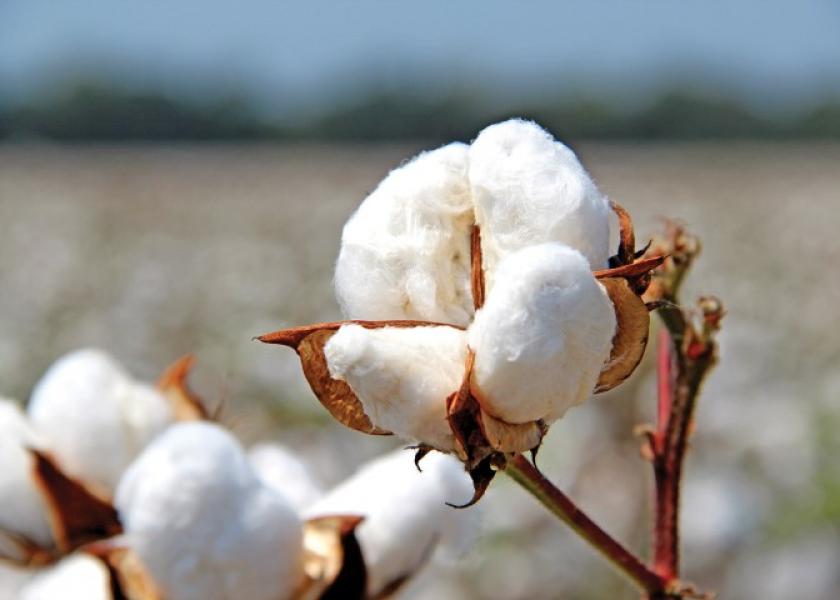New Cotton Trait A ‘Game Changer’ For Tarnished Plant Bug, Thrip Control

Cotton growers needing better control of tarnished plant bugs, thrips and other key pests this season have a new tool now available with the biotech trait ThryvOn Technology.
The first-of-its-kind, cotton biotech trait is commercially available to farmers as Bollgard 3 ThryvOn cotton with XtendFlex Technology – just in time for the 2023 production season.
“The ThryvOn Technology offers growers the first built-in protection against key tarnished plant bugs and thrips species. It’s a game changer for the cotton industry,” says Lindsey Battle, Bayer trait marketing and launch lead for regional crops.
The insects are two of the most damaging pests on cotton-producing acres today across the U.S.
Thrips often infest cotton throughout the growing season. However, they are economically significant pests in the crop primarily during the seedling stage. Under severe infestations, 30% to 50% yield loss in cotton can occur (Cook et al. 2011).
Tarnished plant bug can cause damage to cotton at any growth stage, with most of the economic damage occurring from first-square until early bloom. The pest is the most economically damaging insect pest of cotton in the Mid-South region of the United States, including the states of Arkansas, Mississippi, Louisiana, Tennessee and Missouri (Musser et al. 2007, Gore et al. 2012).
Reduced Number Of Foliar Spray Applications Possible
In Bayer’s Ground Breakers Field Trials program in 2021 and 2022 the ThryvOn Technology reduced average, season-long injury from both pests.
“In both years, we did not have any agronomic consultants recommend a spray for thrips,” Battle says.
With tarnished plant bugs, the number of foliar insecticide applications cotton growers needed to make varied depending on the pressure level during each of the two years.
“We saw a different reduction in the number of sprays between 2021, which was a higher tarnished plant bug season, and then in 2022, which was a lower plant bug year. But on average, what we're seeing is a reduction of between one to two sprays, depending on the pressure,” Battle says.
In addition, field tests showed ThryvOn Technology provided a 6.1% increase in square retention in fields affected by key plant bug species, compared to the negative check.
Farmers Value Spring Planting Flexibility
Anecdotally, one of the interesting and beneficial aspects of the new biotech trait is the planting flexibility farmers have told Battle they believe it offers.
“They’ve told us they can plant the ThryvOn Technology cotton products first, because of the control of thrips, and then they can come back and plant their remaining varieties. So, they are getting most or all their cotton planted before they have to start worrying about managing (insects),” she says.
Along with controlling key thrips and tarnished plant bugs species, the new technology provides a broad spectrum of protection against bollworm, tobacco budworm, and other common worm pests, as well as more options against tough-to-control and resistant weeds like Palmer amaranth, waterhemp and marestail.
“Bayer continues to be the leader in research and innovation when it comes to cotton,” said Battle. “Bollgard 3 ThryvOn cotton with XtendFlex Technology continues the tradition of providing growers with state-of-the-art tools and technologies that help them preserve their fields and protect their legacy.”
To learn more about purchasing the new technology, which will be available through Deltapine and licensees, growers can talk to their seed dealer or visit traits.bayer.com/Pages/Thryvon
Farming for the Future in the Heart of the Mississippi Delta
Cotton Tug-of-War: Production and Prices Battle It Out for 2023
John Phipps: What's Really Going On With Cotton?
Farmer Ground-Truths Numbers on Wide Rows, Low Pops and Profitability







